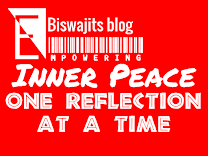The Path to Inner Peace: Practical Mindful Reflections for Growth

Mastering Mindful Reflections: Achieve Inner Peace and Emotional Growth
Welcome to Master Mindful Reflections, your guide to achieving inner peace, emotional growth, and personal well-being. In today’s fast-paced world, stress, distractions, and emotional turmoil often challenge our mental health. This article will explore how practicing mindful reflections can foster self-awareness, boost emotional resilience, and manage stress effectively.
What You’ll Learn
- Why mindful reflections are essential for emotional growth and well-being.
- Practical exercises to enhance self-awareness and inner peace.
- Effective stress management techniques using mindfulness practices.
Understanding Mindfulness and Its Role in Emotional Growth
Mindfulness is the practice of focusing fully on the present moment with acceptance and without judgment. It involves an awareness of our thoughts, emotions, and surroundings, cultivating a sense of calm and clarity. When applied consistently, mindfulness can significantly improve mental well-being, helping us navigate life’s challenges with more resilience and composure.
Mindful reflections take this concept further by encouraging deep, introspective thinking to understand our emotional responses and behaviors. This process aids in emotional growth by helping us identify patterns, understand root causes of stress, and develop healthier ways to cope.
Comparison: Mindfulness vs. Meditation
| Aspect | Mindfulness | Meditation |
|---|---|---|
| Definition | Being present and aware in the moment | A formal practice to train attention and awareness |
| Focus | Daily life and experiences | Usually on breathing or a specific thought |
| Goal | Increase awareness, reduce stress | Achieve a calm and focused mind |
How Mindful Reflections Promote Emotional Growth
Engaging in mindful reflections allows us to explore and process emotions rather than suppress or ignore them. Through self-reflection, we gain insights into our emotional patterns, which helps us react with greater awareness in challenging situations. Regular practice encourages a balanced approach to emotions, making it easier to handle stress and adapt positively to change.
Practical Techniques to Achieve Inner Peace
- Deep Breathing Exercises: Take slow, deep breaths, focusing on each inhale and exhale. This practice calms the mind and reduces stress instantly.
- Mindful Walking: Walk slowly, paying attention to each step and the sensations of your surroundings. This helps ground you and enhances mindfulness.
- Gratitude Journaling: Reflect on and write down things you’re grateful for. This practice shifts focus from stressors to positive aspects of life.
Managing Stress with Mindful Reflections
Mindfulness can be a powerful tool for stress management. By focusing on the present moment and practicing acceptance, we can break free from cycles of worry about the past or future. Here are some techniques:
- Body Scan Meditation: Focus on each part of the body, starting from your toes to your head, to release tension and increase bodily awareness.
- Guided Imagery: Use positive images or scenarios to help the mind relax and detach from stressors.
- Progressive Muscle Relaxation: Tense and then release muscles gradually from head to toe, encouraging relaxation throughout the body.
Building Self-Awareness for Personal Growth
Self-awareness is crucial for personal growth. By observing and understanding our actions, we can make conscious choices aligned with our values and goals. Mindful reflections facilitate this by enabling us to step back, analyze our behavior patterns, and adjust them for better outcomes.
Consider incorporating these exercises:
- Journaling: Write down daily thoughts and feelings. Over time, this reveals recurring themes and insights into emotional triggers.
- Reflective Questioning: Ask yourself questions like “Why did I react this way?” or “What am I really feeling?” to deepen self-understanding.
- Setting Personal Goals: Define growth areas, such as patience or resilience, and track your progress regularly.
Starting Your Mindfulness Journey: Practical Tips
If you’re new to mindfulness, start small. Commit to just a few minutes each day, gradually increasing as you grow comfortable. Some beginner-friendly tips include:
- Choose a Focus: Start with one area, such as breathing or mindful eating, to avoid feeling overwhelmed.
- Be Patient: Mindfulness is a gradual process; embrace the journey without pressuring yourself for immediate results.
- Consistency: Practice daily, even if for only a few minutes. The benefits build over time with regular practice.
Takeaways
- Mindful reflections foster emotional growth, inner peace, and stress resilience.
- Consistent mindfulness practice develops self-awareness, enabling positive changes in thought and behavior.
- Starting with small, simple exercises can build a strong foundation for lasting mindfulness habits.
FAQs
What is mindful reflection?
Mindful reflection is the practice of focusing on one's thoughts and emotions with awareness and non-judgment. It enables deeper self-understanding and emotional growth.
How can mindfulness help in managing stress?
Mindfulness helps reduce stress by encouraging presence and acceptance. Techniques like deep breathing, body scanning, and progressive relaxation can decrease tension and promote calmness.
Can mindfulness improve emotional growth?
Yes, mindfulness enhances emotional growth by promoting self-awareness and helping individuals process their emotions more constructively.
Conclusion
Mindful reflections are powerful tools for achieving emotional growth, inner peace, and stress management. By incorporating mindfulness practices into daily life, we can build resilience, develop a balanced outlook, and live with greater fulfillment. Begin your journey to mindful living today, one reflection at a time.
- Unleashing Your Coding Potential
- Mastering Canonical Tags: A Complete Guide
- Create a Strong Resume and Cover Letter
- How to Define Your Career Goals
- How to Excel in Assam Forest Department Exams
- 10 Reasons Small Businesses Should Sell on Flipkart
- Navigating Job Search in Assam: Top Tips
- Gallery - Topic Opinion Blog
- Trending Now: India Jobs, Loans, and Opportunities
- 10 Reasons Small Businesses Should Sell on Flipkart
- Shop Haven Uncover
- Topic Opinion Blog
- District-Wise Sectoral Opportunities in Assam
- Mindful Living: A Guide to Present Moment Awareness
- Welcome - Biswajit Insights
- Amazon SEO Insider













Comments
Post a Comment